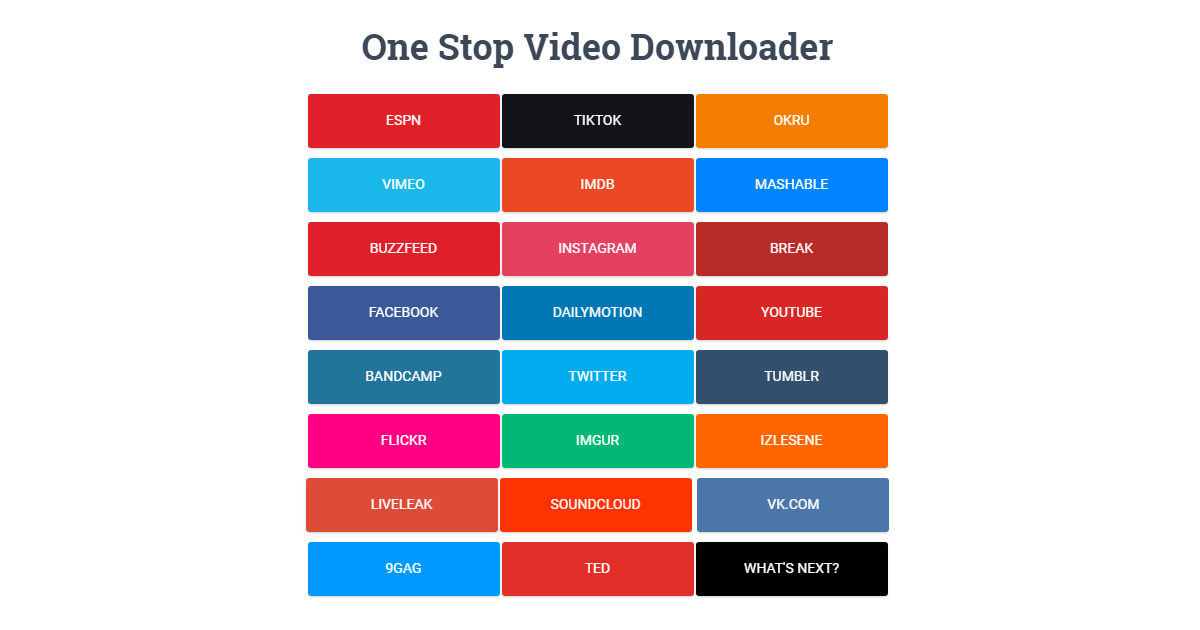In the ever-evolving realm of digital content, deephot links have emerged as a powerful tool for content creators, marketers, and businesses alike. These unique links not only enhance user engagement but also provide a seamless way to share multimedia content across various platforms. By understanding the significance of deephot links, individuals and organizations can unlock new avenues for reaching their target audiences effectively.
The digital landscape is increasingly crowded, making it imperative for creators to stand out. Deephot links serve as a bridge between content and consumers, enabling easy access to rich media experiences. Whether it’s a promotional video, a podcast episode, or an interactive infographic, deephot links can transform how users interact with content, driving traffic and boosting conversions.
As we delve deeper into the world of deephot links, it becomes essential to grasp their functionality and potential applications. This article aims to provide a comprehensive overview of deephot links, exploring their benefits, best practices, and addressing common questions that arise regarding their use in various contexts.
What Are Deephot Links?
Deephot links are specially crafted URLs that direct users to specific content within a website or application, often enhancing user experience and engagement. They are particularly useful in scenarios where direct access to content is essential, such as social media promotions or email marketing campaigns. By utilizing deephot links, content creators can ensure that their audience is directed precisely where they want them to go, eliminating the need for excessive navigation.
How Do Deephot Links Work?
The mechanics of deephot links are relatively straightforward. When a user clicks on a deephot link, they are taken directly to a designated section of a webpage or application. This can include specific articles, videos, or product pages, depending on the content being promoted. Deephot links can also incorporate tracking parameters, allowing marketers to analyze user behavior and engagement levels.
What Are the Benefits of Using Deephot Links?
The advantages of implementing deephot links are numerous:
- Enhanced User Experience: Users can easily access relevant content without unnecessary clicks.
- Improved Engagement: By directing users to specific content, deephot links can significantly increase engagement rates.
- Increased Traffic: Targeted links can drive more traffic to specific pages, boosting overall visibility.
- Measurable Results: Marketers can track the performance of deephot links to refine their strategies.
How to Create Effective Deephot Links?
Creating effective deephot links requires a strategic approach. Here are some essential steps to consider:
- Identify Your Target Audience: Understand who you want to reach and what content they are interested in.
- Select Relevant Content: Choose the specific content you want to promote through your deephot link.
- Use a Link Shortener: Utilize link shortening tools to make your deephot links more manageable and visually appealing.
- Incorporate Tracking Parameters: Add UTM parameters to your links to track their performance and analyze user behavior.
Are There Any Limitations to Deephot Links?
While deephot links offer numerous benefits, there are some limitations to consider:
- Platform Restrictions: Some social media platforms may restrict the use of deephot links.
- Dependence on Internet Connectivity: Users require a stable internet connection to access content via deephot links.
- Potential for Broken Links: If the destination content is removed or relocated, the deephot link may become ineffective.
Can Deephot Links Be Used for Mobile Apps?
Absolutely! Deephot links can be incredibly effective in mobile applications. By utilizing deep linking techniques, app developers can create links that direct users to specific app content instead of the general app homepage. This functionality enhances user experience and encourages higher engagement rates within the app.
What Are the Best Practices for Using Deephot Links?
To maximize the effectiveness of deephot links, it’s essential to follow best practices:
- Keep Links Short and Descriptive: Shorter links are more user-friendly and easier to share.
- Test Your Links: Always test your deephot links to ensure they direct users to the correct destination.
- Monitor Performance: Regularly review the performance of your deephot links to optimize your strategy.
- Share on Multiple Platforms: Leverage various platforms to expand the reach of your deephot links.
How Do Deephot Links Impact SEO?
Deephot links can have a significant impact on SEO when used correctly. By directing users to relevant content, they can reduce bounce rates and improve user engagement metrics—both of which are favorable signals to search engines. Additionally, deephot links can enhance the overall structure of a website by creating a more organized content hierarchy.
Conclusion: Harnessing the Power of Deephot Links
In conclusion, deephot links are an invaluable asset for anyone looking to enhance their digital content strategy. By understanding their functionality, benefits, and best practices, creators and marketers can leverage these unique links to improve user engagement, drive traffic, and ultimately achieve their goals. As the digital landscape continues to evolve, incorporating deephot links into your strategy can provide a competitive edge in reaching and engaging your target audience.
Unveiling The Mystery: Camilla Araujo Of Leaked
Exploring The Unique Offerings Of Mass49.com
Unraveling The Life And Legacy Of Len Tuckey

